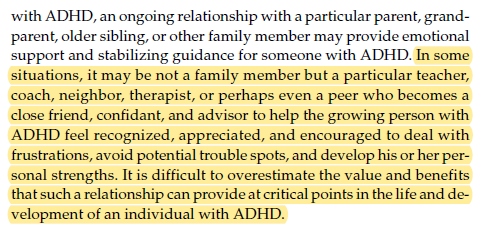Thread by Dr. Johnathan Flowers is also @shengokai@zirk.us
- Tweet
- Jan 13, 2023
- #HealthCare
Thread
I agree: we'd have structural disablement as a feature of whatever other mode of social organization that we adopt instead because eliminating capitalism does not eliminate ableism, nor the habits of ableism that are intensified under capitalism.
Let me rephrase this: capitalism, marxism, socialism, communism are all modes of collective organization for some end. They are technologies of human organization and, like all technologies, they inherit the aims and purposes from the humans who deploy them. Aims like ableism.
It is the transaction between ableism as what Dewey would call an "ideal" aspect of culture, a value system that directs how and what we do, and modes of social organization that are the "material" aspect of culture, results in the kinds of structural disablement in question.
Now, the material aspects of culture includes “habitations, temples and their rituals, weapons, paraphernalia, tools, implements, means of transportation, roads, clothing, decorations and ornamentations,” (LW1:363) as well as the “technical processes” required to use them.
(LW1 is The Later Works of John Dewey, vol. 1 if you want to look up my fucking reference.)
In the above, the transaction of ableism with the material aspects of culture under another mode of social organization would result in the unique ways in which this mode of social organization produces structural disablement. I would be disabled differently under socialism.
Unless folks are willing to go all in and say that disability is the result of capitalism, and not the intersection of the biophysical, the environmental, and the social vis a vis Wendell and Garland-Thompson, you have to acknowledge that ending capitalism won't end disability.
This is not to say that we shouldn't strive for anti-capitalism as part of our disability advocacy. Indeed, I think anti-capitalism would fundamentally improve the lives of disabled people. However, it would not eliminate disability in a robust sense.
Now, what do I mean by "improve the lives" of disabled people? To answer this question, I'm going to use ADHD since I'm in the world through my ADHD. One of the things about ADHD is that it can be improved through social relations with others. Observe:
Indeed, Wendell makes this point insofar as she points to the ways in which disability often requires intersubjectivity given the limitations of embodiment. Mia Mingus points to this in both positive and negative ways in their work on access and intimacy vs. forced intimacy.
So, capitalism might require "forced intimacy" to gain access to scarce resources that we compete over due to the ways in which it structures social relations. A different mode of social organization, say collectivism, might tend towards a more intersubjective understanding.
That is, another social organization might allow for the provision of resources in the mode of accommodations in a more personal, more equitable manner rather than the demand for justification that persists in capitalist structures. For someone with ADHD, this might be great.
Intersubjective accommodations would allow the community to function as the person who cultivates a supportive relationship with the ADHD person such that they can grow and thrive. It takes a village and all that, rather than the individualistic model predicated on capitalism.
However, this merely shifts the locus of structural disablement, as you put it, elsewhere as I would still need to be accommodated in society given the ways that non-normate embodiments aren't typically considered in our idealized alternatives.
(Gonna pause and point to the ways in which many DSA chapters have refused to offer accommodations to their disabled members despite their supposed progressivism. Chew on that for a moment.)
To this end, structural disablement isn't some inherent property of capitalism: it is an outcome of how ableism transacts with modes of social organization to produce structural disablement. It is inherited from a world organized around a normate body.
And it isn't something that we're going to get rid of any any alternative social organization unless we consider seriously how to shape those modes of social organization through drawing upon the experience of disabled persons.
